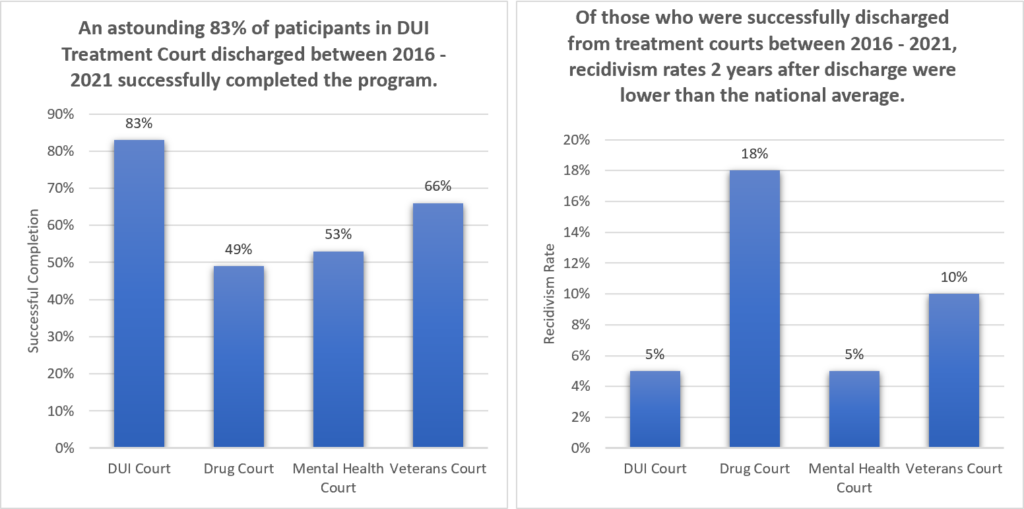
The Berks County Treatment Court program was developed over 20 years ago in an effort to treat offenders struggling with addiction, while also protecting public safety.
The mission of the Berks County Treatment Court Programs is to integrate substance abuse/mental health treatment with the justice system for the promotion of public safety, individual responsibility, and reduction of drug/alcohol -related recidivism.
Berks County has four different treatment court programs:
Drug Court: Established in 2005, Drug Treatment Court involves people with a diagnosed moderate or severe substance use disorder (SUD) who are on probation but in violation status or have new charges resulting from an SUD.
Mental Health Court: Also established in n 2005, Mental Health Court involves people with a diagnosed serious mental illness who are on probation but in violation status or have new charges resulting from their mental illness.
DUI Court: Established in 2003, DUI Court involves 2nd and 3rd time DUI offenders with high blood alcohol contents (BAC). Participants enter an 18-month intensive supervision program which includes judicial intervention and regular visits to a probation officer and treatment professionals.
Veteran’s Court: Established in 2012, Veteran’s Court admits those who have honorably served in the military, but as a result of their service have become involved in the criminal justice system. In addition to intensive supervision, participants are assigned a mentor to help them navigate their time in the court system.
Treatment courts are the single most successful intervention in our nation’s history for leading people with substance use and mental health disorders out of the justice system and into lives of recovery, stability, and health.
Berks County Treatment Courts have a high rate of success, with recidivism rates well below national and state averages.
Drug Treatment Court: Out of 202 participants who were discharged between 2016 – 2021, 49% graduated successfully. Of those 98 graduates, only five had a felony conviction within the one year after discharge. One and two years after discharge, graduates recidivated at a rate of 10% and 18%, respectively.
Veterans Treatment Court: Out of 59 participants who were discharged between 2016 – 2021 from Veterans Treatment Court, 66% graduated. Of those 39 graduates, only 8% recidivated one-year post-discharged, and only 10% two-years post-discharge. What’s most impressive is that none of those were for felony offenses.
DUI Court: Out of 385 participants who were discharged between 2016 – 2021, 83% successfully completed the program. Those 318 successful graduates, spent an average of 569 days in the program, and averaged 463 days of sobriety. Moreover, in 2021 alone, a median of 47,368 jail days (based on sentencing guidelines) were saved through participation in treatment court.
Mental Health Court: Out of 120 participants who were discharged between 2016 – 2021 from Mental Health Court, 53% successfully completed the program. Of those 64 graduates, only 3% and 5% recidivated one- and two-years post-discharge, respectively. Only two participants recidivated with a felony conviction.